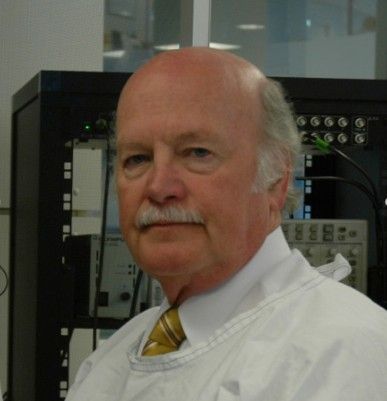Published September 26, 2019
Researcher: John Shine, Ph.D. | Garvan Institute, Australia
 PKD Foundation (PKDF): How did you first get involved in PKD research?John: My early work on cloning the insulin gene for treatment of diabetes led to a lifelong interest in the development and application of molecular genetics to health care. The opportunities provided by the rapid development of whole genome sequencing (WGS) was the catalyst for a collaboration with Dr. Tim Furlong, a leading renal physician at St. Vincent’s Hospital.
PKD Foundation (PKDF): How did you first get involved in PKD research?John: My early work on cloning the insulin gene for treatment of diabetes led to a lifelong interest in the development and application of molecular genetics to health care. The opportunities provided by the rapid development of whole genome sequencing (WGS) was the catalyst for a collaboration with Dr. Tim Furlong, a leading renal physician at St. Vincent’s Hospital.
As a young Research Fellow, Tim worked with me at the Institute some 15 years ago and was very keen to apply WGS techniques to rapidly identify the causative mutations in his polycystic kidney patient families. We were very aware that such mutations were very specific to individual families and such knowledge would significantly facilitate diagnosis, family and lifestyle planning and family kidney donation in the immediate term and hopefully development of informed approaches to future prevention and treatment. Tim was also able to encourage an outstanding young nephrologist/clinical geneticist, Amali Mallawaarachichi to join the research team and undertake her PhD studies in this area. She just graduated with her PhD.
PKDF: What are you working on currently?
John: Having demonstrated that WGS is the most effective diagnostic tool for PKD in a “real world” cohort of patients, our research is currently focused on two main areas: 1) Using the power of WGS to identify the causative predetermining inherited mutation in the ~10% of patients without an identified mutation in either of the two known genes, PKD1 and PKD2, and 2) Identification of the secondary mutations responsible for the development of multiple cysts.
Outcomes from these studies should add to our knowledge of the underlying biology responsible for the initiation and development of cysts leading to renal failure.
PKDF: What would you like the patient community to know about your research?
John: Basic research into understanding the molecular basis of PKD is critical to the development of future treatments for PKD in general but also targeted to each family’s mutation. PKD is a genetic disorder. Its cure and prevention require detailed knowledge of the genes involved and how inactivation of these genes leads to cyst development.
PKDF: Do you have a personal connection to PKD?
John: At the time of starting the PKD project, I did not personally know of anyone with PKD. However, shortly after our first WGS success, I learnt that a son of my wife’s sister had just been diagnosed. We then sequenced the genome of her whole family and were able to confirm that her other son had also inherited the PKD1 mutation but that her daughter (and of course, her children) had not and were thus free of the risk of developing PKD. We could also demonstrate that her husband had suffered the original mutation during embryonic development.
PKDF: What excites you most about this research?
John: In the long term, research has the potential to develop effective ways to prevent and treat PKD. In the medium term, the ability to provide accurate family-specific diagnosis and help guide clinical care and personal decisions. In the day-to-day work, the excitement of discovery about this important disorder. To help families — now and in the future.
PKDF: What are some of your personal interests outside of research?
John: Like all Australians — sport — Australian football, a mixture of Irish football and English rugby. I also have an interest in thoroughbred (racing) breeding. However, to date my “knowledge” of genetics has not helped much — they all eat fast and run slowly… I also enjoy (good) science fiction movies.
PKDF: Anything else you’d like to share?
John: Research on PKD is particularly rewarding as it involves meeting individuals from all walks of life — a mutation in a PKD gene can affect any family, regardless of ethnicity, socio-economic status and lifestyle — it’s just life’s genetic lottery.
Check out Dr. Shine’s grant and others funded by PKDF here!
PKD Foundation is the largest private funder of PKD research in the U.S. Since 1982, we’ve invested close to $50 million in more than 1,300 research, clinical and scientific grants, fellowships and scientific meetings. Each year, The Foundation identifies and supports the work of scientists and researcher from around the world who look for ways to treat and eventually cure PKD.
Our vision is to end PKD. Donations help fund necessary research that leads to more effective treatments and ultimately a cure for PKD.









0 Comments